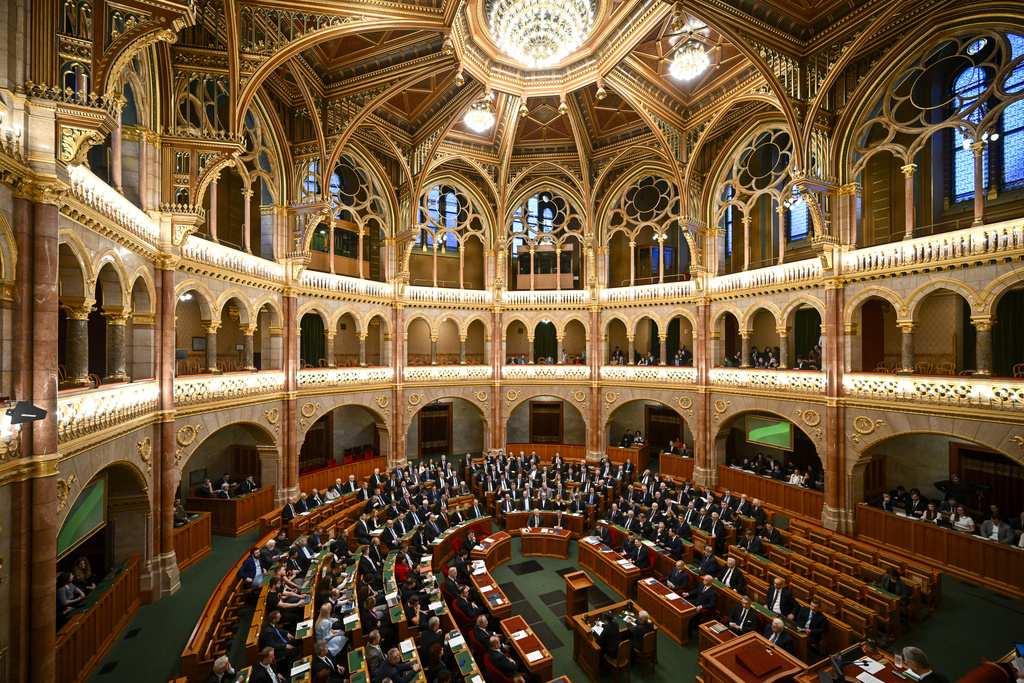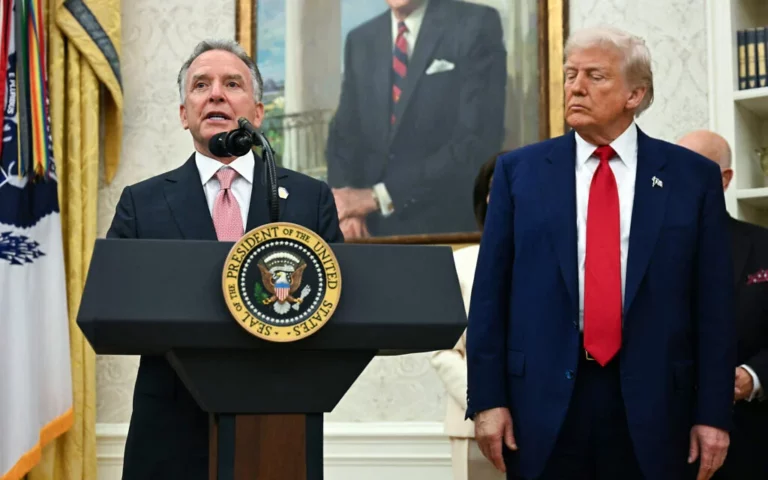Hungary’s parliament voted Monday to ratify Sweden’s bid to join NATO, bringing an end to more than 18 months of delays that have frustrated the alliance as it seeks to expand in response to Russia’s war in Ukraine.
The vote, which passed with 188 votes for and six against, was the culmination of months of wrangling by Hungary’s allies to convince its nationalist government to lift its block on Sweden’s membership. The government of Prime Minister Viktor Orbán submitted the protocols for approving Sweden’s entry into NATO in July 2022, but the matter stalled in parliament over opposition by governing party lawmakers.
Hungary’s decision to approve Stockholm’s bid paved the way for the second expansion of NATO’s ranks in a year after both Sweden and Finland applied to join the alliance in May 2022 following Russia’s full-scale invasion of Ukraine — an assault that was purportedly intended to prevent further NATO expansion.
Unanimous support among NATO members is required to admit new countries, and Hungary is the last of the alliance’s 31 members to give its backing since Turkey ratified the request last month.
Swedish Prime Minister Ulf Kristersson called it “a historic day.”
“We stand ready to shoulder our share of the responsibility for NATO’s security,” Kristersson wrote on X, formerly known as Twitter.
Orbán, a right-wing populist who has forged close ties with Russia, has said that criticism of Hungary’s democracy by Swedish politicians soured relations between the two countries and led to reluctance among lawmakers in his Fidesz party.
But addressing lawmakers before the vote, Orbán said: “Sweden and Hungary’s military cooperation and Sweden’s NATO accession strengthen Hungary’s security.”
Orbán criticized Hungary’s European Union and NATO allies for pressuring his government in recent months to move forward on bringing Sweden into the alliance.
“Several people tried to intervene from the outside in the settling of our disputes (with Sweden), but this did not help but rather hampered the issue,” Orbán said. “Hungary is a sovereign country. It does not tolerate being dictated by others, whether it be the content of its decisions or their timing.”
Last weekend, a bipartisan group of U.S. senators visited Hungary and announced it would submit a joint resolution to Congress condemning Hungary’s alleged democratic backsliding and urging Orbán’s government to allow Sweden’s integration into NATO.
On Monday, ambassadors from several NATO countries were in the parliamentary chamber during the vote. The U.S. ambassador to Hungary, David Pressman, told reporters Sweden’s approval was “a decision of strategic significance to the United States of America, to Hungary and to the trans-Atlantic alliance as a whole.”
“This has been a decision that has taken some time, and we look forward to the process concluding rapidly,” Pressman said.
A presidential signature, which is needed to formally endorse the approval of Sweden’s NATO bid, was expected within the next few days.
Kristersson, Sweden’s prime minister, met last week with Orbán in Hungary’s capital, where they appeared to reach a decisive reconciliation after months of diplomatic tensions.
Following their meeting, the leaders announced the conclusion of a defense industry agreement that will include Hungary’s purchase of four Swedish-made JAS 39 Gripen jets and the extension of a service contract for its existing Gripen fleet.
Orbán said the additional fighter jets “will significantly increase our military capabilities and further strengthen our role abroad” and will improve Hungary’s ability to participate in joint NATO operations.
“To be a member of NATO together with another country means we are ready to die for each other,” Orbán said. “A deal on defense and military capacities helps to reconstruct the trust between the two countries.”
Robert Dalsjö, a senior analyst with the Swedish Defense Research Agency, told The Associated Press on Friday that Hungary’s decision to finally lift its opposition came only after Turkey and its president, Recep Tayyip Erdogan, voted in January to ratify Stockholm’s bid.
After becoming the last NATO holdout with the Turkish vote, Orbán had to show some results for his government’s delays, Dalsjö said.
“In hiding behind Erdogan’s back, Orban could play, do some pirouettes,” he said. “Then when Erdogan shifted, Orban wasn’t really prepared for adjusting his position, and he needed something to show that could legitimize his turnaround. And that turned out to be the Gripen deal.”
Monday’s vote was just one matter on a busy agenda for lawmakers in the Hungarian parliament. A vote was also held on accepting the resignation of President Katalin Novák, who stepped down earlier this month in a scandal over her decision to pardon to a man convicted of covering up a string of child sexual abuses.
After accepting Novák’s resignation, lawmakers are expected to confirm Tamás Sulyok, the president of Hungary’s Constitutional Court, as the country’s new president. He is set to formally take office on March 5.
(AP)











